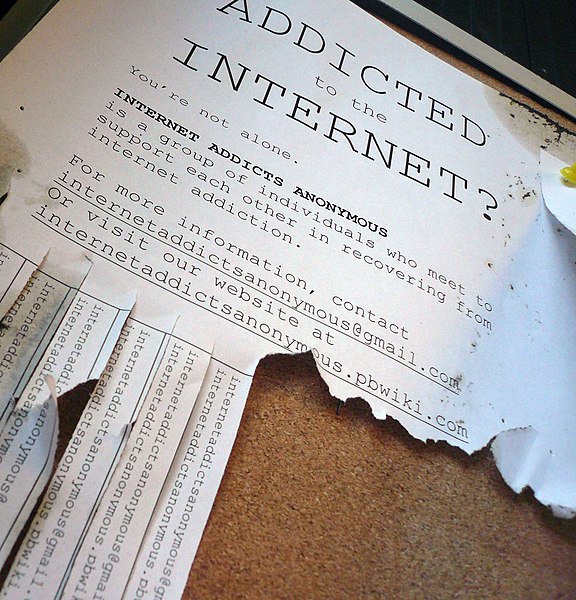Internet addiction disorder
Internet addiction disorder (IAD) can otherwise be referred to as problematic internet use or pathological internet use. It is generally defined as problematic, compulsive use of the internet, that results in significant impairment in an individual's function in various aspects of life over a prolonged period of time. Young people are at particular risk of developing internet addiction disorder, with case studies highlighting students whose academic performance plummets as they spend more and more time online. Some also experience health consequences from loss of sleep, as they stay up later and later to chat online, check for social network status updates or to further progress in a game.
Internet addiction disorder
People using their smartphones
A 2009 flyer for an internet addiction support group in New York City
Information overload is the difficulty in understanding an issue and effectively making decisions when one has too much information (TMI) about that issue, and is generally associated with the excessive quantity of daily information. The term "information overload" was first used as early as 1962 by scholars in management and information studies, including in Bertram Gross' 1964 book, The Managing of Organizations, and was further popularized by Alvin Toffler in his bestselling 1970 book Future Shock. Speier et al. (1999) said that if input exceeds the processing capacity, information overload occurs, which is likely to reduce the quality of the decisions.
Illustration for an article published in Diario Uno [es]




![Illustration for an article published in Diario Uno [es]](https://upload.wikimedia.org/wikipedia/commons/thumb/d/d8/Information_overload1.jpg/640px-Information_overload1.jpg)